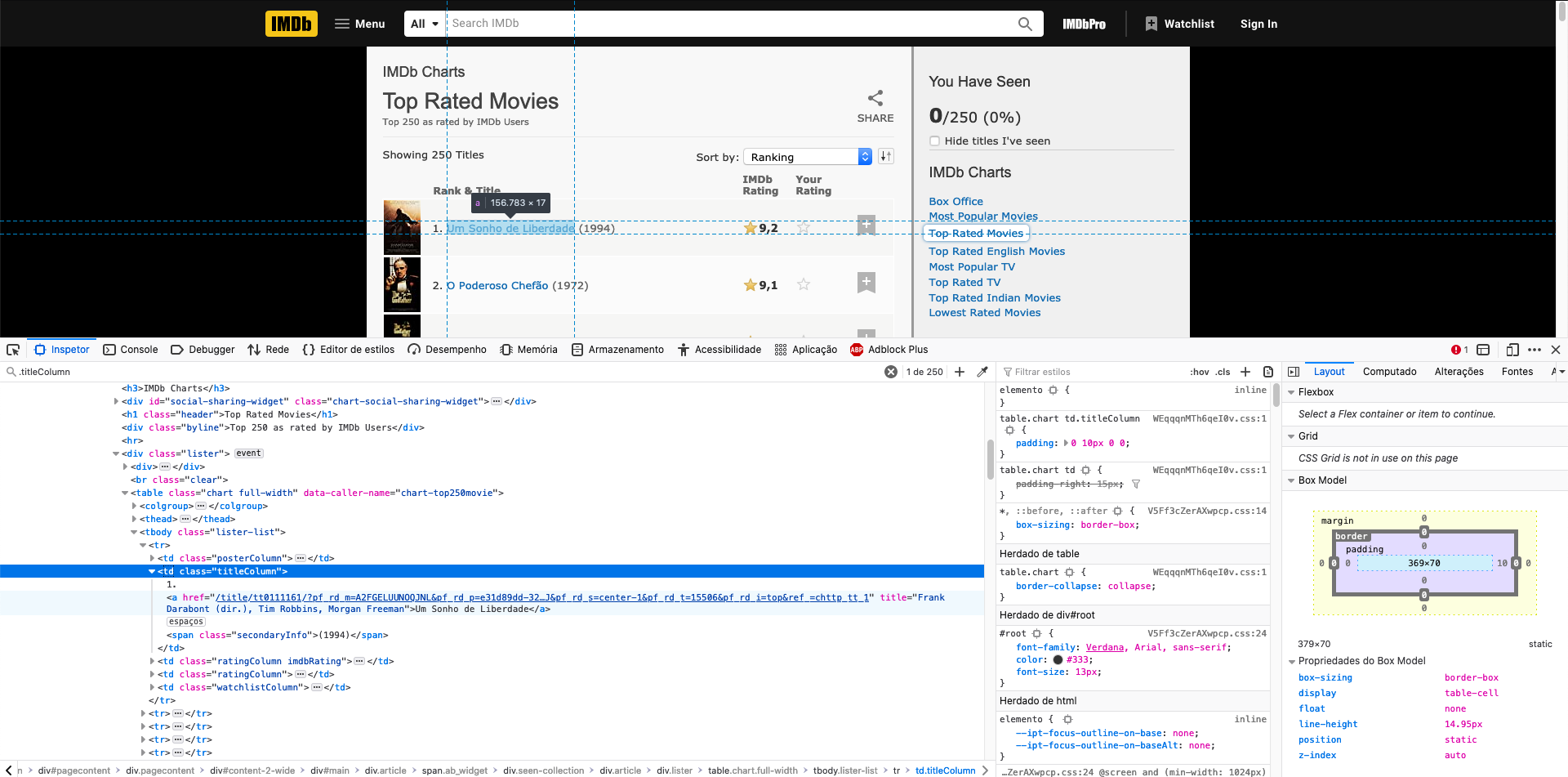Web scraping faster
Using grequests to scrape multiple pages
A common Python library for interacting with URLs is requests. When combining requests with a webscraping library, such as BeautifulSoup, you are able to retrieve information inside the website’s HTML or XML files.
The thing is that if you need to scrape not only a single webpage, but a significant quantity, requests may not be the most efficient way. One faster approach is using grequests. It allows you to make multiple asynchronous HTTP requests with the same ease as if you were using requests.
I’ll show you an example to compare the performance of both methods. To reproduce the example, make sure you have requests, grequests and BeautifulSoup installed:
$ pip install requests
$ pip install grequests
$ pip install bs4
We will scrape the IMDB’s top 250 movies url and, for each movie, we will extract its title and director. Every movie has its own url and we will access them all to obtain the information we want. The first step, thus, is to retrieve the list of the 250 urls and, since we do this from a single website, we use requests for this job and BeautifulSoup to do the actual extraction:
import requests
from bs4 import BeasutifulSoup
r = requests.get('https://www.imdb.com/chart/top?ref_=nv_mv_250')
soup = BeautifulSoup(r, 'lxml')
Using your browser’s HTML inspector (access it pressing F12), you can find that each movie is in a td object with class="titleColumn".
 Mozilla’s HTML inspector showing the IMDB’s top 250 movies
Mozilla’s HTML inspector showing the IMDB’s top 250 movies
This is exactly what we are going to use to find the url for each movie. We are now looking for the link to the movie’s website. Inside each element found, there is supposed to be a href value. This value appended to www.imdb.com gives us the movie url. They will have the format of /title/tt*******. Every element of top250 has a contents attribute and looking inside it we find the href value we are searching for.
top250 = soup.find_all('td', class_='titleColumn')
urls = []
for elem in top250:
url = elem.contents[1]['href']
urls.append(url)
We can start, now, our comparison. Let’s begin with requesting one url at a time. I’m going to define an auxiliary function to extract and parse the information from each movie page. As before, I used the browser’s HTML inspector to find the elements to use with BeautifulSoup. Somehow, when I open IMDB it always gives the movie titles in Portuguese, so I had to look for the original title. I split the title using ( as a delimiter because in the HTML meta object, the og:title gives movie title (movie year). The director information is in the object div in class="credit_summary_item". After debugging to find where exactly they were located in the soup object, the result is:
def get_title_director(url):
r = requests.get(url)
soup = BeautifulSoup(r.text, 'lxml')
title_elem = soup.find('meta', property="og:title")
title = title_elem.attrs['content'].split('(')[0]
director_elem = soup.find('div', class_="credit_summary_item")
director = director_elem.contents[3].contents[0]
return title, director
OBS: When coding for real, good practice tells you to actually define these ‘random’ numbers and delimeters as constants at the begining of the code. For simplicity, they remain here.
import time
# One by one
start_time = time.time()
for i, url in enumerate(urls):
title, director = get_title_director('www.imdb.com' + url)
if title and director:
print(f"{i + 1} - {title}- {director}")
print(f"One by one takes: {time.time() - start_time:.2f} seconds")
Let’s see how to use grequests before I show you the results I’ve got. Notice that we use the same urls list. Now, we will get the movies’ information in batches of 10. But first, we change a bit our auxiliary function:
def get_batch_title_director(self, batch):
rs = (grequests.get(url) for url in batch)
resp = grequests.map(rs)
titles = []
directors = []
for i, r in enumerate(resp):
soup = BeautifulSoup(r.text, 'lxml')
title_elem = soup.find('meta', property="og:title")
title = title_elem.attrs['content'].split('(')[0]
director_elem = soup.find('div', class_="credit_summary_item")
director = director_elem.contents[3].contents[0]
titles.append(title)
directors.append(director)
return titles, directors
OBS: When coding for real, you can define a parsing function called by both
get_title_directorandget_batch_title_directorto avoid repeating code.
Scraping in batches of 10 urls, then, can be done as follows:
start_time = time.time()
for i in range(0, len(urls), cfg.BATCH):
batch = ['https://www.imdb.com' + url for url in urls[i:i + 10]]
titles, directors = get_batch_title_director(batch)
if titles and directors:
for j, movie_info in enumerate(zip(titles, directors)):
print(f"{j + i + 1} - {movie_info[0]}- {movie_info[1]}")
print(f"In batches takes: {time.time() - start_time:.2f} seconds")
The result I’ve received when bundling all this code together was:
One by one takes: 296.04 seconds
In batches takes: 59.04 seconds
Pretty amazing, right? If you want to better understand why this difference of around 5 times happens, I recommend reading more about concurrency and about gevent, the library used by grequests to make concurrency happen.
You can check my full code for this in my GitHub repo.
